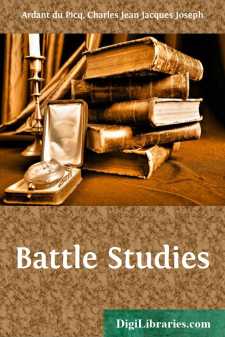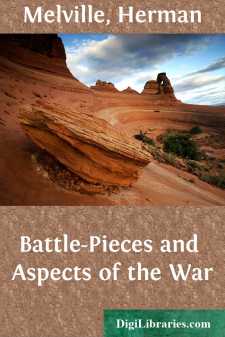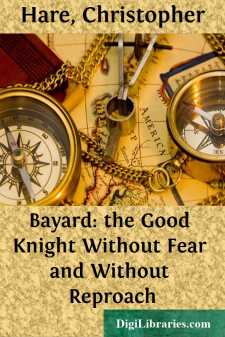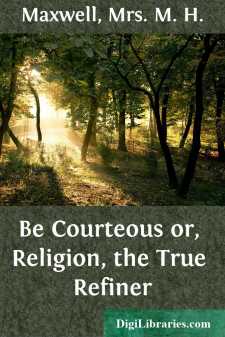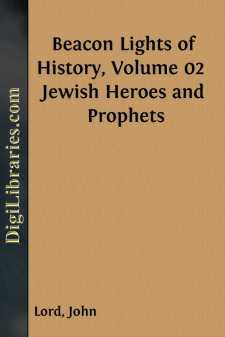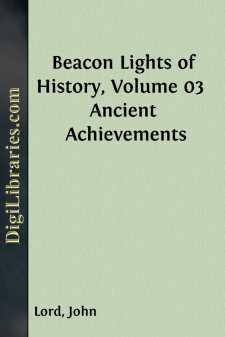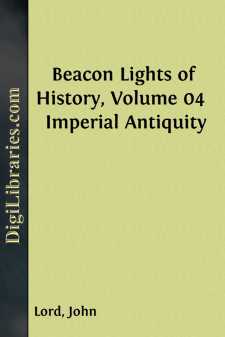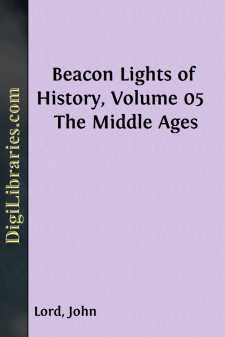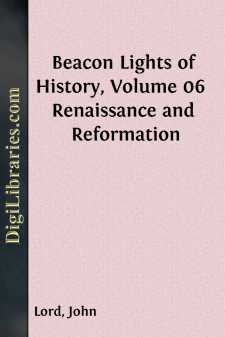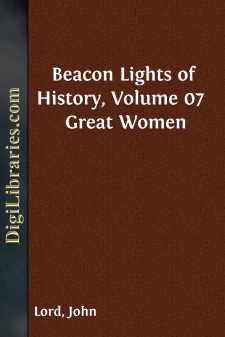Fiction
- Action & Adventure 180
- Biographical 15
- Christian 59
- Classics
- Coming of Age 5
- Contemporary Women 3
- Erotica 8
- Espionage/Intrigue 12
- Fairy Tales, Folklore & Mythology 236
- Family Life 169
- Fantasy 117
- Gay 1
- General 596
- Ghost 32
- Historical 808
- Horror 43
- Humorous 159
- Jewish 25
- Legal 4
- Medical 22
- Mystery & Detective 315
- Political 49
- Psychological 41
- Religious 64
- Romance 158
- Sagas 11
- Science Fiction 730
- Sea Stories 113
- Short Stories (single author) 537
- Sports 10
- Suspense 1
- Technological 8
- Thrillers 2
- Urban Life 31
- Visionary & Metaphysical 1
- War & Military 173
- Westerns 199
Classics Books
Sort by:
In presenting to the American reading public a translation of a volume written by an obscure French colonel, belonging to a defeated army, who fell on the eve of a battle which not alone gave France over to the enemy but disclosed a leadership so inapt as to awaken the suspicion of treason, one is faced by the inevitable interrogation—"Why?" Yet the answer is simple. The value of the book of...
more...
by:
Herman Melville
Misgivings. (1860.) When ocean-clouds over inland hills Sweep storming in late autumn brown, And horror the sodden valley fills, And the spire falls crashing in the town, I muse upon my country's ills— The tempest bursting from the waste of TimeOn the world's fairest hope linked with man's foulest crime. Nature's dark side is heeded now— (Ah!...
more...
by:
Christopher Hare
CHAPTER I Pierre Terrail, the renowned Bayard of history, was born at the Castle of Bayard, in Dauphiné, about the year 1474, when Louis XI. was King of France. He came of an ancient and heroic race, whose chief privilege had been to shed their blood for France throughout the Middle Ages. The lord of Bayard had married Hélène Alleman, a good and pious lady of a noble family, whose brother Laurent...
more...
CHAPTER I. THE PLAIN—THE ISOLATED DWELLING—BLUE-BERRY PARTY—TAKING A VOTE—TREATMENT OF NEW ACQUAINTANCES—THE FAMILY AT APPLEDALE—THE YOUNG PEOPLE UPON THE PLAIN—SINCERE MILK OF THE WORD—A CALL AT THE LOG-HOUSE—THE RIDE HOME—ORIGINAL POETRY. Not more than a mile and a half from a pleasant village in one of our eastern States is a plain, extending many miles, and terminated on the...
more...
by:
John Lord
When we pass from David's personal character to the services he rendered, how exalted his record! He laid the foundation of the prosperity of his nation. Where would have been the glories of Solomon but for the genius and deeds of David? But more than any material greatness are the imperishable lyrics he bequeathed to all ages and nations, in which are unfolded the varied experiences of a good man...
more...
by:
John Lord
Whatever may be said of the accuracy of the great geographer of antiquity, it cannot be denied that he was a man of immense research and learning. His work in seventeen books is one of the most valuable that have come down from antiquity, both from the discussions which run through it, and the curious facts which can be found nowhere else. It is scarcely fair to estimate the genius of Strabo by the...
more...
by:
John Lord
CHRYSOSTOM. A.D. 347-407. SACRED ELOQUENCE. The first great moral force, after martyrdom, which aroused the degenerate people of the old Roman world from the torpor and egotism and sensuality which were preparing the way for violence and ruin, was the Christian pulpit. Sacred eloquence, then, as impersonated in Chrysostom, "the golden-mouthed," will be the subject of this Lecture, for it was by...
more...
by:
John Lord
SAINT ANSELM. A. D. 1033-1109. MEDIAEVAL THEOLOGY. The Middle Ages produced no more interesting man than Anselm, Abbot of Bec and Archbishop of Canterbury,--not merely a great prelate, but a great theologian, resplendent in the virtues of monastic life and in devotion to the interests of the Church. He was one of the first to create an intellectual movement in Europe, and to stimulate theological...
more...
by:
John Lord
MICHAEL ANGELO. A.D. 1475-1564. THE REVIVAL OF ART. Michael Angelo Buonarroti--one of the Great Lights of the new civilization--may stand as the most fitting representative of reviving art in Europe; also as an illustrious example of those virtues which dignify intellectual pre-eminence. He was superior, in all that is sterling and grand in character, to any man of his age,--certainly in Italy;...
more...
by:
John Lord
BEACON LIGHTS OF HISTORY HÉLOÏSE. * * * * * A.D. 1101-1164. LOVE. When Adam and Eve were expelled from Paradise, they yet found one flower, wherever they wandered, blooming in perpetual beauty. This flower represents a great certitude, without which few would be happy,—subtile, mysterious, inexplicable,—a great boon recognized alike by poets and moralists, Pagan and Christian; yea, identified not...
more...


